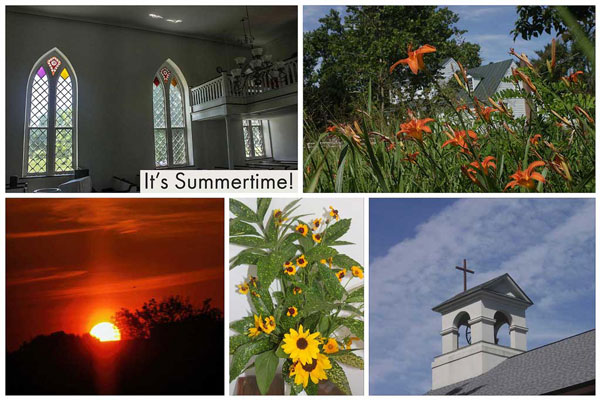
Today’s reading from Mark 3 recounts the further build up of opposition to Jesus’ ministry. Mark 3:20-35 tells of Jesus’ homecoming after he called his first disciples and the reception he received. “The crowd came together again, so that Jesus and his disciples could not even eat. When his family heard it, they went out to restrain him, for people were saying, “He has gone out of his mind.”
The opposition was after Jesus using labels. People had begun to talk about Jesus and were spreading some rumors and tales, including that Jesus was possessed by Beelzebul. It wasn’t just that – Jesus was busy healing and preaching. He was developing a following that didn’t follow the teaching of the established groups around him – pharisees, scribes and even his family. That may have been the rub
Bishop Curry’s “Crazy Christians” address to the 2012 General Convention of the Episcopal Church in Indianapolis equated “gone out his mind” to being crazy. “His call then was for all of use to be a little crazy ‘We need some Christians who are as crazy as the Lord. Crazy enough to love like Jesus, to give like Jesus, to forgive like Jesus, to do justice, love mercy, walk humbly with God — like Jesus. Crazy enough to dare to change the world from the nightmare it often is into something close to the dream that God dreams for it. And for those who would follow him, those who would be his disciples, those who would live as and be the people of the Way? It might come as a shock, but they are called to craziness.’ He cited Mary Magdalene who stayed with Jesus through the crucifixion when the other disciples deserted; Harriet Beacher Stowe who wrote about “the brutality, the injustice, the inhumanity of the institution of chattel slavery” in Uncle Tom’s Cabin; Steve Jobs who encouraged us to “think differently..because the people who are crazy enough to think they can change the world, are the ones who do.”
Jesus enlarged his family beyond biological ties to those accept and follow God. Jesus, who is doing good works, cannot be possessed by a demon, for what he is doing is the complete opposite of what demonic forces would do.
Catherine sermon in 2012 creates fictional discussion based on the Gospel. This actually relates to Proper 9, Mark 6:1-13 but the issues are similar.
“We’re putting ourselves at risk, because Jesus is not that gentle stained glass God, who never leaves the church building, but the man who expects his disciples to follow the Way that God set out for him, a way of witness, of service, and of healing out in the world.
“What does this expectation of Jesus for his disciples require of us? Three things that are essential for discipleship today jump out at me from this passage.
“In Christian community, we discern together the will of God, hopefully avoiding the trap of taking up a human agenda that co-opts God’s will. And that old cliché is so true—“Two heads are better than one.” Facing risks and unexpected situations is easier together than alone. Jesus made sure that the disciples had companionship in place before he sent them out.
“Second, borrowing from Alcoholics Anonymous, Let Go and Let God. The disciples found out that when they set aside their own power, and let God work through them, they really could proclaim the good news, and that God really could cast out demons, and heal the sick through them. God can work through us as well if we are willing to set aside our own need for power and let God’s healing power flow through us.
“Third, and one of the most important lessons for us, who live in such a materialistic and self sufficient society is to travel light. We can’t seem to risk leaving home today without taking with us all of our electronic devices and our chargers, and our stash of water, and all of the other particular clothes and shoes our trip might require.
“And yet, Jesus sends the disciples out on their mission trip dressed in one tunic, a pair of sandals, and carrying only a staff—just as Moses and Aaron, sent on a mission from God to free the Israelites, went before Pharaoh wearing sandals and carrying only a staff.
“The point is that they were not to depend on their own self-sufficiency, but on God. As Paul says in his letter to the Corinthians, “My grace is sufficient for you, for power is made perfect in weakness.”
“When God sends us out, hopefully we trust God enough to go out dependent on God’s grace, rather than our own self-sufficiency.
“In our petitions in the prayers for the newly baptized, we ask God “to send them out into the world in witness to your love.” As disciples of Jesus, that is the calling for each and every one of us here today.
“So when you leave this place, go out into the world in witness to God’s love. Go with God and with your Christian companions.

 Pentecost 6 – Mary and Martha
Pentecost 6 – Mary and Martha


